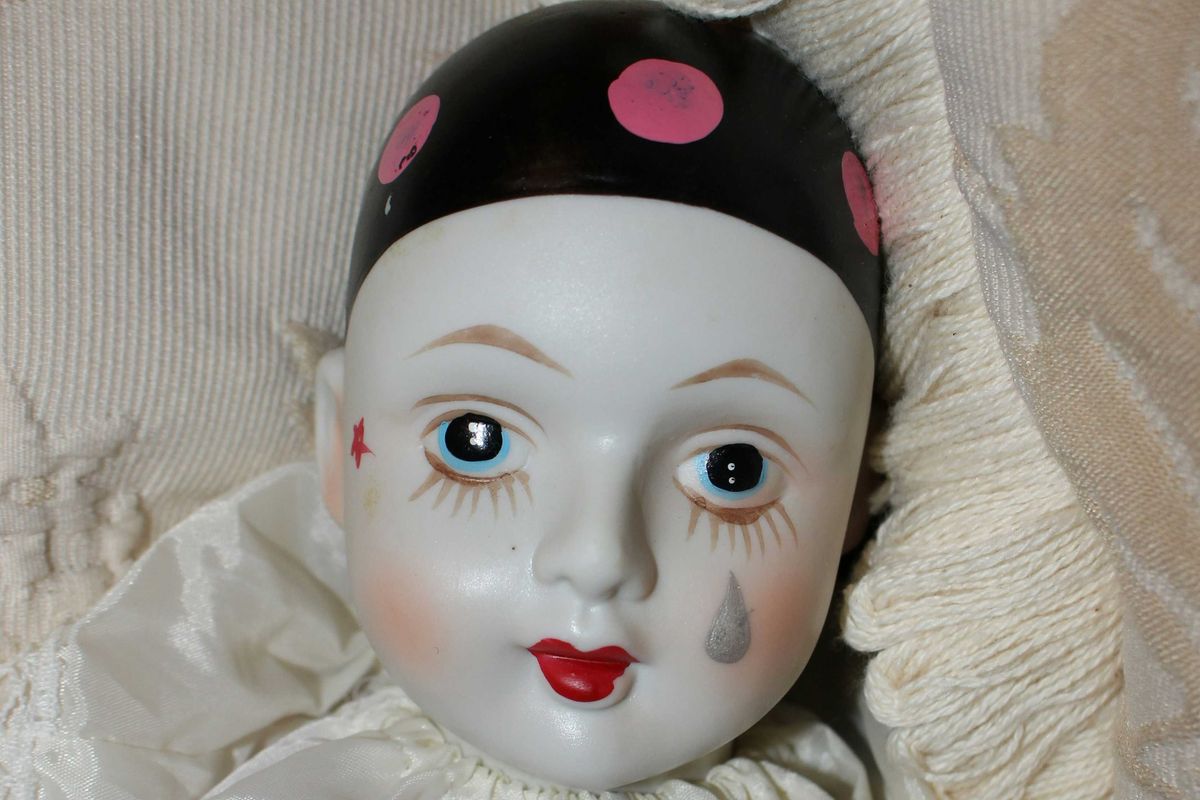I'm at a Christmas party. The people are gracious, the food is scrumptious, the wine is fantastic, and so is the music.
But I’m miserable. Why?
Because in my mind, this is what's playing in a loop: You should be happy. You should be grateful. You should be thankful.
Should be. For many folks, the holidays are a beautiful time of year. A time of rest, connection with loved ones, and celebration. But let's be real: that doesn't mean it's all mistletoe and cheer.
Image via iStock.
The holidays can also be a time of grief, family tensions, loneliness, and facing our own imperfections.
For me, the holidays are brutal because my brother and several friends died this time of year. Since this is traditionally a time of remembrance, I find it doubly hard to bring my heart into the present. Even though I'm surrounded by people at this Christmas party, I feel lonely. Worse: I feel like it's not OK to have these feelings.
Image by Tarang hirani/Flickr.
I know I'm not the only one.
One of my close friends was abandoned by her husband in December, and she's reminded of his betrayal every time the holidays roll around. She actually loves Christmas, but that pain is always awakened in the holiday season.
Even if you haven't experienced a major loss, we're all hit with a set of assumptions and expectations this time of year. That we should black out our calendars for holiday events with people we may not be all that excited to see. That we should be available to participate in activities that can be really draining. That we should spend money. Lots of money. And, all the while, that we should be full of joy.
Image by jpellgen/Flickr.
So what if you're not? What if, like my friend, you’re feeling lonely and hurt? What if, like me, you're aching in grief as you remember the loss of someone beloved?
If this is a difficult time of year for you, understand that you're not alone. The holidays are in no position to create a happy ending where none exists.
Which is why I want to offer these four suggestions to those who need them:
1. Turn off the Christmas carols if you're not in the mood, and don't go to that party if you don't want to.
Because you don't have to get into the holiday spirit. You don't have to feel the way others tell you to feel. You only need to care for yourself and offer yourself to others as best you can.
Image by Tom Lin/Flickr.
The fact is, trying to repress your true feelings and appear cheery and grateful when you're actually suffering doesn't really work. Psychologist Iris Mauss conducted a series of studies in which she found that the more value people placed on feeling happy, the less happy and more lonely they were likely to be. Research also shows that focusing on attaining happiness by fulfilling materialistic desires — a holiday pastime — can increase the risk of depression, can decrease the quality of relationships, and can mean less happiness in the long run.
Go ahead and feel what you need to feel. It's better for you.
2. If you're grieving, understand that the pain associated with it is perfectly natural.
Grieving hurts so vividly because it’s a wail of aching love, repeated to infinity. In this wailing is an opportunity to acknowledge our losses and remember those who have been taken from us. It's also an invitation to stand in solidarity with those who have experienced similar pain, without shame.
Image by Melvin E/Flickr.
3. If the season is making you feel lonely, give yourself permission to be brave enough to reach out to someone.
You might be embarrassed and feel the desire to self-isolate. The tendency to hide can explode amid the holidays because there's so much pressure to appear "perfect." We're brought face-to-face with our imperfections, and this couldn't be more true than with our relationships. Many people have strained or disconnected relationships with their families. Others find that, as the holidays approach, many of their friends aren't really there for them.
Reach out so someone who can be there for you. Just one person. That friend who seems to get you even though you rarely see her? Give her a call. That teacher who stood by your side when your world was falling apart? Reach out to him.
4. If there isn't a specific person you want to reach out to, don't be afraid to choose to be alone with intention.
Spending time in silence can actually cultivate confidence. It can allow you to observe your emotions more objectively and teach you the value of learning to enjoy your own company, instead of buying into the assumption that there's something inherently wrong with spending time alone.
Step into nature and allow it to inform you. Journal your wounds onto the page. It can be hard, I know. But if you choose to stand in your brokenness, it will begin to lose some of its power over you.
Image by Ryan Blanding/Flickr.
None of these activities will make your pain go away, but they will ensure you have the space you need to grieve safely and in a spirit of love.
If we'd just allow ourselves to be brave enough to express how we're really feeling, this season could be a time for authentic connection and healing.
This brings me back to that Christmas party: I remember seeing a friend of mine in the corner, nursing a drink, looking terribly uncomfortable. Her eyes conveyed a deep pain she was clearly trying to mask. I could have approached her and acknowledged her. I could have offered her my presence by standing with her in silence. But I didn't. At the time, I was too self-absorbed and nervous.
If I could do it again, I'd tell her exactly what I'd be much more confident in saying now: the truth.
I'd tell her I hated being at the party, and that every day in the Christmas season is profoundly painful for me. I wouldn't try to make her feel great by pretending to feel great.
I'd try to make her feel loved by being vulnerable. By feeling what I need to feel and being who I can't help but be. And you can, too.
- 3 ways to get through the holiday season with toxic family - Upworthy ›
- Woman shows simple DIY Christmas decor hack for garland - Upworthy ›
- Broke mom gives best 'holiday gift guide' - Upworthy ›
- Woman shares how much her 'Angel Tree' gift meant to her - Upworthy ›
- Dad creates unique Christmas tradition for his daughter - Upworthy ›



 A man being licked by a golden retreiver.
A man being licked by a golden retreiver.  A dog's tongue close-up.
A dog's tongue close-up.  A golden retreiver getting their teeth brushed.
A golden retreiver getting their teeth brushed. 
 Homemade granola bars with chocolate chips – perfect for a delicious snack!
Homemade granola bars with chocolate chips – perfect for a delicious snack! Refresh with a healthy green juice boost.
Refresh with a healthy green juice boost. Making fresh orange juice in the kitchen. 🍊
Making fresh orange juice in the kitchen. 🍊 Be careful with supplements.
Be careful with supplements.

 A white porcelain doll with a tear stain. Photo by
A white porcelain doll with a tear stain. Photo by 